In the first part of our interview with Herman’s Hermits’s Peter Noone, the performer, born November 5, 1947, talked about the early days of the band and some of their biggest hits. In this second and final part, Noone addresses the band’s stardom in America, their later days and what he’s done since the Hermits’ breakup.
What was it like the first time you landed in America, got off the plane and saw all those girls screaming? You were already used to that from home, but did you expect to see it here too?
Peter Noone: Well, it grew. It started at the Cavern with one or two girls at the front of the stage. Then it became 10, then it became more. I remember we were [touring] with Dusty Springfield and we pulled the bus into the parking lot of the Liverpool Empire. It was kind of a hometown thing because my parents lived in Liverpool, so I was kind of considered to be a Liverpool act and a Mancunian, which gave me an easier access to all those Liverpool clubs. Dusty was so kind and pleasant. We were really rough, compared to what she was used to. We were really yobs. So we pulled into the back of the Liverpool Empire, and it was clear that 100 percent of the girls outside the bus were screaming “Herman! Herman! Herman!” And she very kindly said, “Well, this looks like your night,” which was very endearing. It’s like when somebody gives you the cup before you win it. That was the turning point, really. We realized then that we could draw people to concerts. We’d only had one single, but the TV thing had helped. We had a following.
Watch Herman’s Hermits perform “I’m Henry VIII, I Am” on The Ed Sullivan Show in 1965
From that moment on, every time we went to work, we got more people who were fans. And when we got to America, it was just a hundred times more of the same thing. They’d gone from two to 20 to 200 to 2,000 to 20,000 in weeks. It was the power of radio, and we were so smart because we didn’t want anything except to be on the radio. The dream was if you got on the radio, you would be on there with Frankie Valli and Elvis Presley and Chuck Berry—all the people that we idolized. So you’d get on the radio and there you were within the same room as all those people. It was my visualization of what the music business was. I was probably only about 15, but I realized that you didn’t need to buy a record to like it. You could buy the ones that you really liked, but you would know all the other ones as well. I knew all the words to Cliff Richard’s songs, even though I never bought one. I liked them, but I didn’t buy them. Radio gave you an opportunity to listen to songs hundreds of times without buying them.
Watch Herman’s Hermits perform “No Milk Today” in 1966
Image was a big part of the band’s success. You guys looked pretty harmless compared to some of the other bands, so you were able to get on TV more, and parents didn’t find you a threat.
You had Andrew Oldham creating the Stones’ bad boy thing, and then we would be the perfect opposite of the Rolling Stones: Herman’s Hermits would go home to their mums and dads in Manchester. But that was true! We didn’t need to act. We were those people. We were like the first punk band because we didn’t have a plan other than to get on the radio. Every gig I do now, I think of the Cavern while I’m up there, because I like to think that that’s where I caught my break. It happened there and at the Twisted Wheel and the Oasis in Manchester. We were probably crap but we connected to the audience.
Watch them perform “Dandy”
What do you think caused the band to lose popularity in the late ’60s? Was it because you didn’t make the transition to psychedelia and heavy rock?
We got trapped in a world that we didn’t want to be in. We didn’t want to go psychedelic. That would’ve been like, sh*t, that’s a joke. That’s like going disco, like doing a disco version of “Henry VIII.” And believe me, people suggested that. But we didn’t want to be that. What happened was we’d fallen out with our American label so we only had the English charts. All the big hits that we had after that were when we fell out with the American label. We had “Sunshine Girl” and “My Sentimental Friend” and “Sleepy Joe” and “Years May Come, Years May Go.” They were huge number ones and number twos in England, but never were released in America.
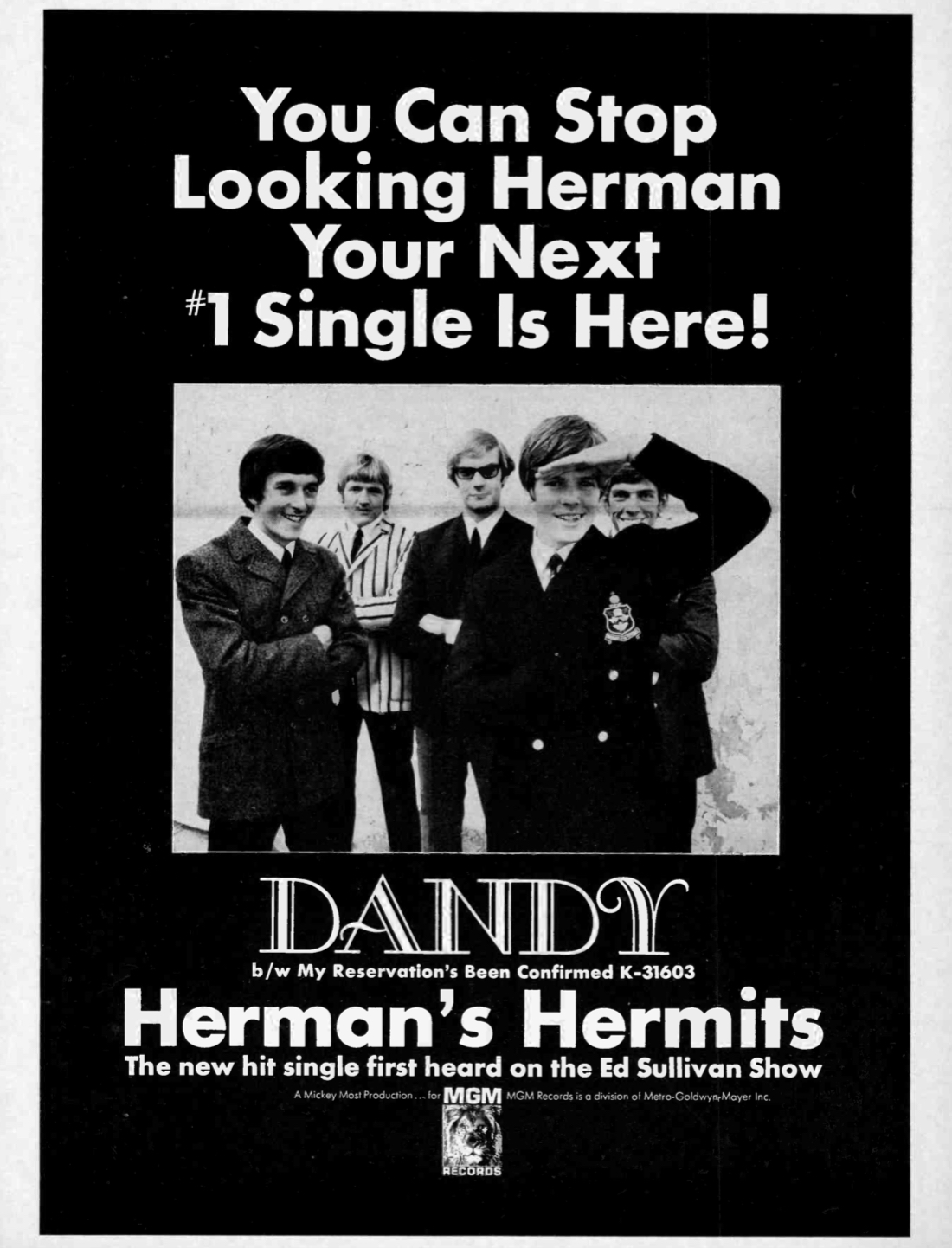
This ad appeared in the Nov. 1, 1966 issue of Record World.
Watch Herman’s Hermits perform “My Sentimental Friend,” one of their final U.K. hits
In 1971, you did a cover, under your own name, of “Oh You Pretty Things” by a young songwriter named David Bowie. He played piano on your version, which went to #12 in the U.K. How did that come about? [Ed. Note: Noone’s version was titled “Oh You Pretty Thing.”]
He was this character that was around, and he’d had “Space Oddity.” He’d fallen out with his managers and he was sort of trapped, waiting for his own record deal. He needed money and he played a couple of his songs to Mickie Most, and Mickie Most said, “I think I found the next single.” I said, “OK, great.” He said, “I don’t want it to be a Herman’s Hermits single. I want it to be Peter Noone.” So we went over to the studio and I met with David a little bit and he played me all these songs. Every song he played in the studio, I wanted to record. It was like [songwriter of “A Must to Avoid” and other hits] P.F. Sloan again. But Mickie wanted to do “Oh You Pretty Things.” We couldn’t find anybody who could play the piano like David Bowie played on the demo, so David had to play on the session. He’d never played piano in a session before. He was a very good pianist but he didn’t want to tell anybody that. It was unusual; he only played the black notes, so we had to do it in F sharp.
Why did the Hermits break up in 1971?
We concentrated on England and we wore ourselves out with each other. We got to do the Royal Command Performance. I got the Hermits to dance, which they never wanted to do. They were not actors and they weren’t dancers, but there we were in motion pictures, dancing. We basically fell apart. None of us wanted to do that. I remember [bassist] Karl Green, we finished this show, and it was like, “My goodness, let’s take a break from each other, and when we feel like getting together, let’s get back to that.” He took off his suit and jumped up and down on it in the dressing room: “I’m never f**king wearing this again!” He wanted to be in the Stones. Everybody wanted to be in the Stones.
You went solo after that. Did it work out the way you hoped it would?
It really did, because I was able to do all the things I couldn’t do because of being in Herman’s Hermits. I couldn’t do a Broadway show because they would then be unemployed. When I worked on any solo thing, the rest of the group would be unemployed, and that’s not good. That is not a good feeling for them, that they can’t exist without me. I started to get angry that things that had been offered to me were never mentioned. They wanted me to replace Tommy Steele in Half a Sixpence, which would’ve been great for me. I could have done it—not as good as him but I could have done it. But the Hermits had mortgages. You’d go away for six months earning a hundred pounds a week doing something you wanted to do, but the Hermits would lose their homes. All that stuff was going on and I was a kid, so I was immature. I didn’t know that it was not complimentary to say that Jimmy Page played on the record, but you play it better than he does now. [Ed. Note: Page played guitar on “Silhouettes,” “Wonderful World,” and possibly others.] You put a 15-year-old kid in charge of the business and it goes badly. I had no idea. The end of it was we did this Royal Command Performance and I was in the dressing room with Tom Jones and Andy Williams and the Hermits had been put on the top floor, with the dancers. I didn’t even know. I was so busy being me that I didn’t even know where they were. I just knew that they played great on stage; they never made a mistake.
Moving up to the present, how many nights a year do you perform now?
I’d say about 160. In 2019, maybe 200 because I did a solo tour in England.
[Noone still performs; tickets are available here.]
Does it bother you that the Hermits have been passed over by the Rock and Roll Hall of Fame?
No. I’ve never thought about it.
I know [guitarist] Derek Leckenby passed away in 1994. Do you keep in touch with any of the other original Hermits?
All of them. I’m not friends with [drummer] Barry [Whitman], but he’s not a bad guy. The rest of the Hermits are really angry at him because he kind of hijacked the name somewhere along the game, took ownership of the name. It should be co-owned, I think, but you can’t do that. He’s an old man now and he’s doing his thing and I’m happy with the situation the way it is. I still speak to Keith [Hopwood, rhythm guitarist] a lot because we’re still the two people who could manage the business of Herman’s Hermits, the business stuff: the record deals and the publishing. There are all these songs that Keith and I publish, so we’re business partners. And I need a good hang; Keith is a really nice guy. I called Karl to ask him did anybody ever give him a compliment for how great he was? And he said no. So I said, “Well, let me be the first.”
Watch a scene from the Hermits’ 1966 film Hold On!
Will we ever see another album from you?
I do these fun one-offs [guest appearances], which I really enjoy.
Your cover of “Friday on My Mind” is great!
Yeah. I did that with the Weeklings. It was their idea. And I did a thing with the Red Button called “Ooh Girl,” which I really liked. I’m enjoying that kind of thing. I’ve got a thing coming out with Carla Olson. We did the Searchers’ song, “Goodbye, My Love.” They’re fun little things that I do. There’s no solo albums now; there’s no such thing as that anymore.
What do you still want to do that you haven’t done?
I want to do this for another 10 years and then see what happens. I’m enjoying doing the SiriusXM thing because it gives me an opportunity to be creative. And I’m going to do this one-man thing [solo shows], because I think I’ve got a good bit of stuff. I’m just going to be me and tell stories about me and play little bits and pieces. And we can do those songs that we never do in the live show, like “Don’t Go Out Into the Rain” and “This Door Swings Both Ways.”
One final question: How do you manage to sound and look the same as you did in 1965?
You know, I think it’s my mom and dad were pretty young-looking until they died. I try to keep healthy, and I have a pretty good spirit. I’m naively optimistic about the future. I don’t get involved in any kind of politics; that’ll keep you young. There’s no reason for me to get angry.
[Various hits collections are available in the U.S. here and in the U.K. here. Harvey Lisberg, the group’s manager during their heyday, has published his memoir, I’m Into Something Good. It can be ordered here. Highly recommended.]

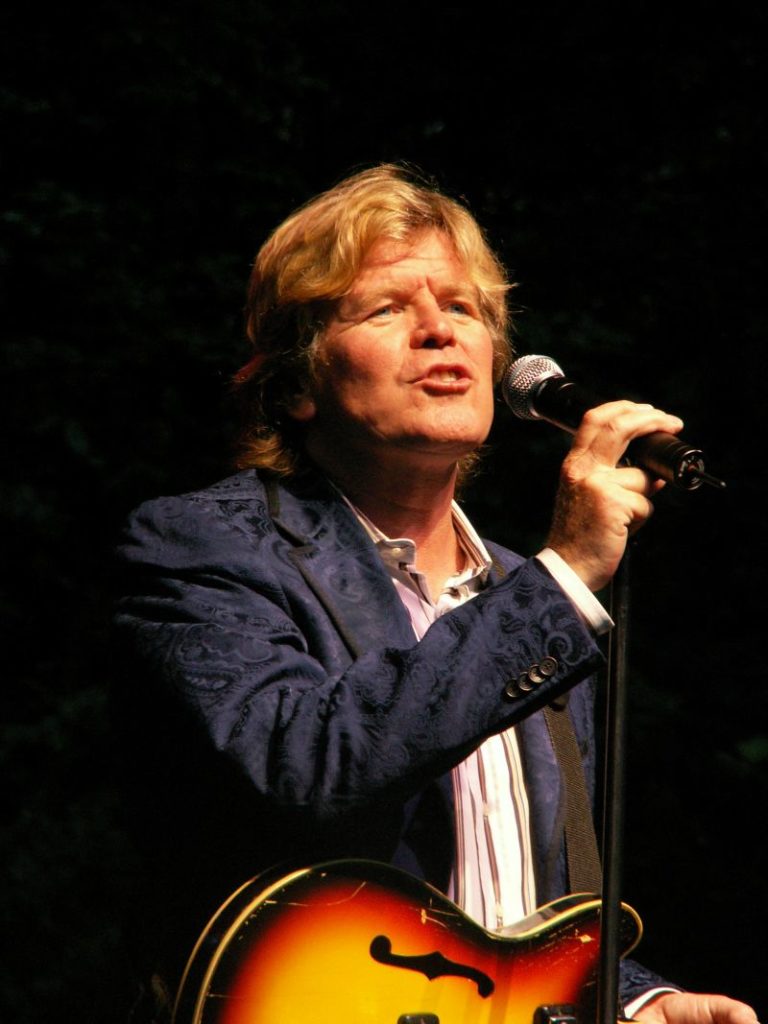
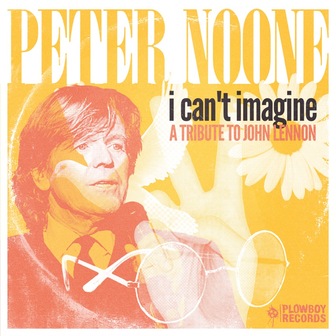

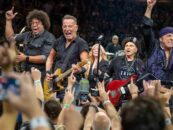
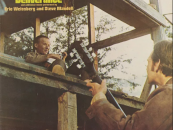
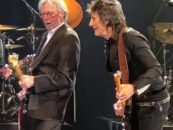
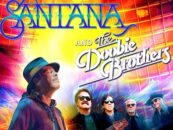

7 Comments so far
Jump into a conversationI saw Peter in concert many years ago, in the Chicago area. After the concert, I asked him why he doesn’t perform “My Sentimental Friend”, in concert as it is a beautiful song! Peter said it wasn’t a hit in America. Still a great song/performance. Well worth finding on many Herman’s Hermits compilations.
‘My Sentimental Friend’ was, in my opinion, one of the Hermits’ best songs.
I saw Herman’s Hermits at a small bar in 1979. It looked the entire band except for Peter. They were a lot of fun even after all the shots people were sending to them. Saw Peter many years later on his own and was, also, a very good performance, albeit much more professional. Loved them both!
Just saw them in Mason City IA (2019) They we’re so good!! Peter and the band really had the sold out crowd going!
Saw Peter at the Woodstock Fair (Woodstock, CT) more than a few years back (2009)…an afternoon show for all us geriatrics.
He actually put on a good show, was really enjoying himself.
enjoyed him in concert nycb in westbury..got the tickets as a gift my mom loved them..so did my aunts…thank you for Dandy which i will always dedicate to brian jones. there was even a short film with brian jones in it..very fitting! hope 2 c them again..
I catch Peter every year. He puts on a fun, energetic show. His Christmas show is especially good. He does his Herman Hermits songs but also covers a lot of 60s/British Invasion tunes.